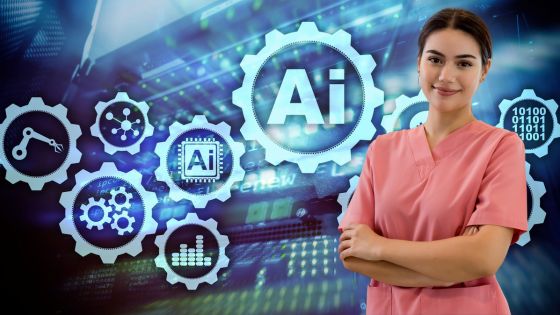Artificial intelligence (AI) has revolutionized the healthcare industry in recent years. AI refers to technology and software designed to perform tasks traditionally handled by humans.
It offers the potential to streamline processes, improve decision-making, and enhance overall efficiency. In long-term care facilities, AI is being explored not only for resident care but also for staff education and training.
It’s essential to recognize the roles of intelligence augmentation (IA) and generative AI to better understand how AI can reshape this sector. While AI is often viewed as a tool to replace certain human functions, IA focuses on collaboration.
IA uses AI as an assistive tool and empowers humans to enhance their abilities rather than replace them. Generative AI, on the other hand, takes AI a step further by creating new content from a set of inputs or prompts, drawing on vast databases of knowledge.
AI in Healthcare: A Long-Standing Tool
AI, IA, and Generative AI in healthcare are not new concepts. For example, some electronic medical record (EMR) systems have long utilized AI to analyze data and suggest potential outcomes or care plans.
Hospitals and long-term care facilities have incorporated AI into systems that provide actionable insights. Additionally, AI and IA are now employed by healthcare organizations to develop policies and procedures, bringing greater precision and consistency to decision-making processes.
Generative AI in Healthcare Education: A New Frontier
For long-term care staff, continuous learning is critical to ensuring high standards of resident care. AI-driven educational tools hold promise for enhancing training programs, especially given the complexities involved in caring for elderly populations.
These systems can offer personalized learning experiences, identify knowledge gaps, and suggest targeted content to fill those gaps, all while adapting to each staff member’s learning pace.
In particular, Generative AI in healthcare education represents an exciting frontier. Through its vast databases of medical knowledge, it can create new training materials that are both up-to-date and tailored to the needs of long-term care facilities.
Challenges and Considerations
It’s important to remember that implementing AI in education isn’t as simple as pressing a button. Successful integration requires a strategic approach that balances AI-generated content with human oversight.
While AI and IA can provide valuable support, human expertise is essential in interpreting and applying results effectively in real-world scenarios. The use of AI in healthcare, particularly for educational purposes, must be approached with careful consideration of ethical and practical challenges.
Join Us at the AHCA/NCAL Convention & Expo
At the upcoming AHCA/NCAL Convention & Expo, Healthcare Academy will share its experiences and lessons from using AI, IA, and Generative AI to develop education for long-term care facilities.
We’ll provide insights into best practices and tips for organizations new to these tools, helping them leverage the power of AI in healthcare and create more effective, engaging training programs for their staff.
Take the Next Step
Are you ready to explore AI and healthcare education? Join us at the AHCA/NCAL Convention & Expo, or contact Healthcare Academy today to learn more.
